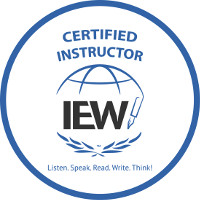Homeschooling your child can become daunting, especially when he or she reaches high school.
Inspired Writing & Literature makes it easy for parents to prepare their child with the thinking and communications skills necessary for college success so that their child can be ready for their future and live in alignment with their faith.





